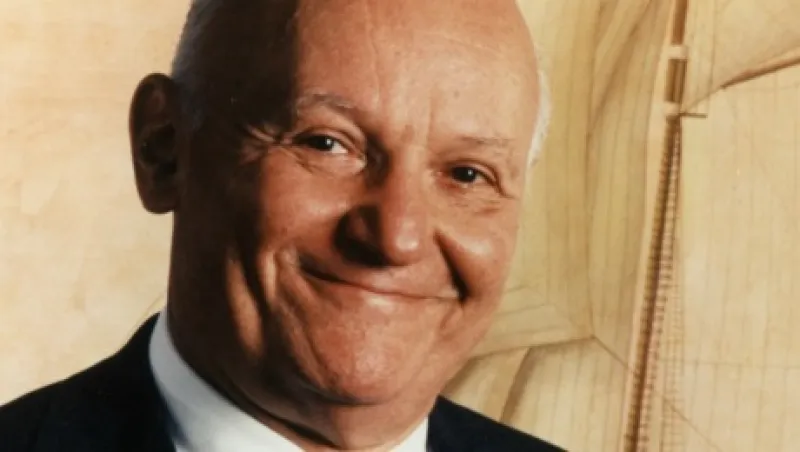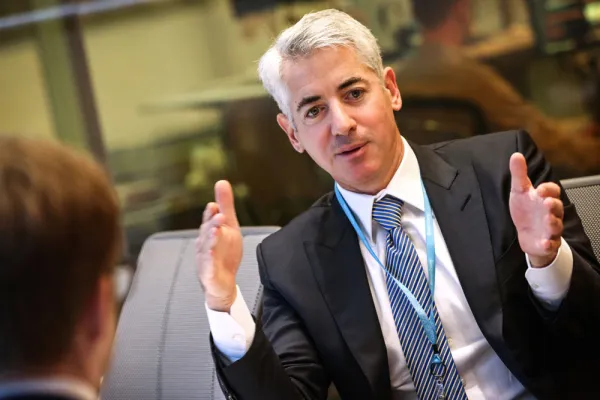A little over a month ago, Wall Street lost a legend. Alan (Ace) Greenberg, who led Bear Stearns Cos. as CEO from 1978 to 1993 and served as chairman until 2001, passed away. Since his death there have been a multitude of tributes, all of them spelling out one nuance or another that made Greenberg so special. Together those tributes create a composite that illustrates Ace Greenberg’s unique brand. Now, as summer comes to an end, Bear Stearns alum Russell Sherman shares with Institutional Investor his thoughts on why that brand won’t fade any time soon.
I used to joke that Ace Greenberg probably saved five years’ worth of time over the course of his life because he never said hello or good-bye on a phone call. You would pick up and he would just start talking. And when he was done, there would be a click and silence. Unfortunately, on July 25 the proverbial phone went silent again. Ace died at the age of 86.
Despite his get-to-the-point demeanor, Ace was widely considered to be one of the most thoughtful and generous guys on the Street — and one of the most savvy.
These days CEOs and executives talk about the importance of building their brands. Who are they? What do they stand for? How can they share their thoughts with the world? But few executives had as good a brand as Ace Greenberg did, and he made it look easy.
Ace’s brand was multifaceted.
He was about mitigating risk. He had a pretty simple mantra: Ride the winners, sell the losers. He would hold “cold sweat” meetings, where people had to disclose any losses they might have been holding. He would start meetings with the bad news. “If there’s time, we’ll get to the good news,” he would say.
Ace wrote memos that were silly and fun but loaded with meaning. Save paper clips; make sure people always know where you are; be on time. “If I ever feel that the people at Bear Stearns start thinking their body odor is perfume and I cannot convince them otherwise — I will sell my stock,” he wrote in one memo. The memos were published as a book in 1996.
Ace’s brand was also magic. He was in the American Society of Magicians, and every Christmas he would put on a magic show for the kids of the employees at Bear Stearns.
His brand was about generosity. He was a driving force behind Bear Stearns’ policy that required all senior employees to give 4 percent of their compensation to charity. And he led by example. In the days following Ace’s death, the New York Times condolence section was flooded with remembrances and thank-yous from charities he supported.
Ace cared about fairness. He instituted a no-nepotism policy at Bear Stearns for fear that related employees would undermine the meritocracy he was striving to build. If two employees got married, one had to leave the firm.
Ace’s brand was about accessibility. He sat out on the trading floor, he said hello to everyone he saw, and, much to the chagrin of our PR department, he often answered his own phone. One startled reporter once asked, “You answer your own phone?” “Only when it rings,” Ace replied.
Brand-building is also about third-party endorsements, and the goodwill Ace had developed produced plenty of admirers. Ace received this endorsement from a guy named Warren Buffett: “Ace Greenberg does almost everything better than I do: bridge, magic tricks, dog training, arbitrage — all of the important things in life.”
Not too bad.
But to me Ace will be remembered most of all for his kindness. I was fortunate to visit him in his office about four months before he died. We talked, he bought me a shoe shine, we ate Mallomars. I went there to thank him for his support over the years. In particular, I brought up three phone calls he’d made to me that stood out: one early in my career congratulating me on some success I’d had, another after an especially tough day when Bear was reaching its end and the third when I arrived at my new job at Prosek Partners; his was one of the first calls I got.
At Ace’s funeral the synagogue was packed — I’m guessing far more than they ever get for the High Holidays — and in every row were people who had similar stories. If you knew Ace, you likely had a story about him doing something generous.
And maybe that’s the most important lesson other CEOs can take away about building a brand: Everyone matters, and the goodwill that you build is not forgotten.
The end of a life is always sad — this one particularly so because of how many people Ace touched. Fortunately, however, Ace doesn’t say goodbye, remember? Which means his impact will stay with us all for a long, long time to come.
Russell Sherman is a partner at Prosek Partners and former head of corporate public relations at Bear Stearns.






